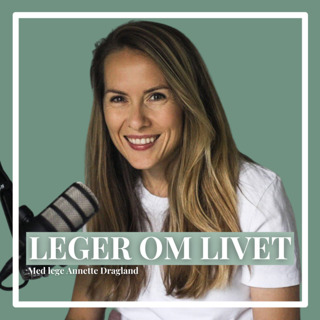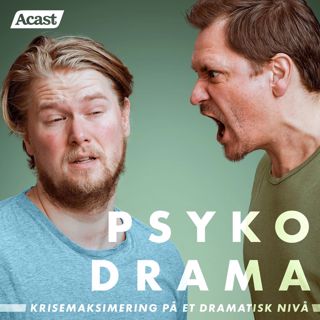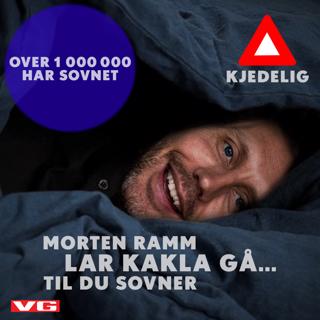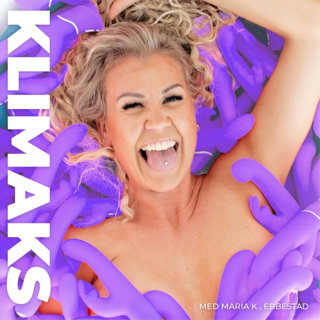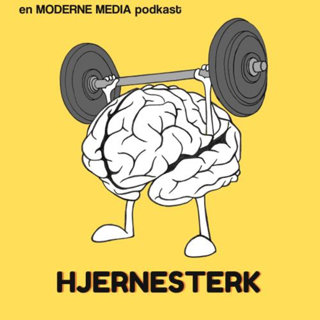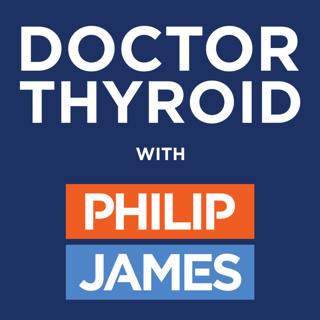
What Do You Do For a Living?⎥Why It Matters, with Dr. Ashok R. Shaha from MSKCC
Dr. Shaha specializes in head and neck surgery, with a particular interest in thyroid and parathyroid surgery. He uses an algorithm of selective thyroid tumor criteria (the size, location, stage and type of cancer, along with the patient’s age), to tailor therapy to each individual’s circumstances. This can help thyroid cancer patients avoid unnecessary and potentially damaging over-treatment, while still providing the best option for control of their cancer and better quality of life after treatment. Dr. Shaha works very closely with Memorial Sloan Ketterings’ endocrinologists to monitor the careful post-treatment hormone balancing necessary for thyroid cancer patients. Many academic hospitals and medical societies worldwide have invited Dr. Shaha to speak on the principles of targeted thyroid surgery and to share his expertise in the treatment of head and neck cancers. In this interview, topics include: The first question a surgeon should ask and why. When talking active surveillance or observation, changing the language to deferred intervention, ‘we are going to defer’. Understanding the biology of the cancer The biology of thyroid cancer is a friendly cancer. Anxiety when diagnosed with cancer. Medical legalities — spend a lot of time with patient — and empower patient. Let the treatment not be worse than the disease. Large tumors, more than 4 cm, bulky nodes, voice hoarseness, vocal cord is paralyzed. All circumstances where surgery maybe advocated. If a tumor is benign but there is presence of compressive goiters, or deviation of trachea or swallowing difficulty. Considering the condition of the patient, age, cardiac issues. When voice is critical to the patients livelihood, such as teachers, politicians, and singers. Main three complications of surgery include bleeding, change of voice, calcium problems. Non-academic surgeons. Cancer treatment requires a team: surgeons, anesthesiologist, pre-op, radiologist, pathologist, endocrinologists, oncologists. When wind pipe is involved with tumor. When in surgical business a long time, you become humble no matter how good you are. Family present during consultation. God gave you an organ — you took it away — now you are on a pill — since the surgery its ’just’ not the same. When treatment is out of the box — many will not agree with you. How to develop a scale to measure quality of life. To avoid scarring, surgery maybe conducted through the armpit in Korea and Japan. Fibrosis Progress in understanding biology of thyroid cancer only cancer, that there is 98% survival. NOTES: Dr. Ashok R. Shaha RELATED EPISODES: 50: Regarding Thyroid Cancer, Are You a Minimalist or a Maximalist? with Dr. Michael Tuttle from Sloan Kettering 40: New Research Reveals Thyroid Surgery Errors 5x More Frequent Than Reported with Dr. Maria Papaleontiou from Michigan Medicine 42: Flame Retardants Connected to Thyroid Cancer, with Dr. Julie Ann Sosa from Duke University 35: Rethinking Thyroid Cancer – When Saying No to Surgery Maybe Best for You with Dr. Allen Ho from Cedars-Sinai in Los Angeles 21: Diagnosed with Thyroid Cancer and You Say No to Surgery with Dr. Louise Davies 09: Thyroid Cancer Patients Experience Quality of Life Downgrade with Dr. Raymon Grogan and Dr. Briseis Aschebrook from the University of Chicago Medicine 36: 1 in 3 People Die With Thyroid Cancer — Not From with Dr. Seth Landefeld from UAB American Thyroid Association
7 Mar 202150min

89: Your Patient ‘Type’ May Determine Your Thyroid Cancer Treatment → Dr. Michael Tuttle from Sloan Kettering
During this interview, Dr. Tuttle discusses the following points: Challenges of managing thyroid cancer as outlined by the guidelines Scaling back care for insurance-challenged patients, and adopting a plan that gets the same result without needing the expensive tests Desired outcome is survival and no recurrence, a third is for no harm that would be caused by an unnecessary surgery Unwanted side affects of thyroid cancer include nerve damage, parathyroid damage, and infections RAI sometimes has unwanted side affects With technology, ultrasounds and biopsies, we know some cancers do not need to be treated, as they are now being found very early Change in ATA guidelines, low risk cancers can be considered for observation Two different kinds of patient profiles: Minimalist and Maximalist 1cm or 1.5cm? Patient characteristic, ultra sound characteristics, and the medical team characteristics weighs who is the most appropriate for observation 400 active surveillance patients currently at MSKCC Certain parts of the world are harder to offer observation as a treatment due to practicality, examples include Latina America where multi-nodular goiters are common, and Germany still is iodine deficient About Dr. Tuttle, in his words: I am a board-certified endocrinologist who specializes in caring for patients with advanced thyroid cancer. I work as part of a multidisciplinary team including surgeons, pathologists, radiologists, nuclear medicine specialists, and radiation oncologists that provides individualized care to patients treated at Memorial Sloan Kettering for thyroid cancer. In addition to treating patients I am also actively researching new treatments for advanced thyroid cancer. I am a professor of medicine at the Joan and Sanford I. Weill Medical College of Cornell University and travel extensively both in the US and abroad, lecturing on the difficult issues that sometimes arise in the management of patients with thyroid cancer. My research projects in radiation-induced thyroid cancer have taken me from Kwajalein Atoll in the Marshall Islands to the Hanford Nuclear power-plant in Washington State to regions in Russia that were exposed to fallout from the Chernobyl accident. I am an active member of the American Thyroid Association (ATA) and the Endocrine Society. In addition to serving on the ATA committee that produced the current guidelines for the management of benign and malignant nodules, I am also a Chairman of the National Comprehensive Cancer Network Thyroid Cancer Panel, a consultant to the Endocrinologic and Metabolic Drugs Advisory Committee of the FDA, and a consultant to the Chernobyl Tissue Bank. NOTES Listen to Doctor Thyroid American Thyroid Association Dr. Michael Tuttle RELATED EPISODES 35: Rethinking Thyroid Cancer – When Saying No to Surgery Maybe Best for You with Dr. Allen Ho from Cedars-Sinai in Los Angeles 22: Avoiding Thyroid Cancer Surgery, Depending on the Size with Dr. Miyauchi from Kuma Hospital in Kobe, Japan 21: Diagnosed with Thyroid Cancer and You Say No to Surgery with Dr. Louise Davies
6 Mar 202139min

36: 1 in 3 People Die With Thyroid Cancer — Not From with Dr. Seth Landefeld from UAB
The USPSTF upholds its 1996 recommendation against screening for thyroid cancer among asymptomatic adults. The USPSTF commissioned the systematic review due to the rising incidence of thyroid cancers against a background of stable mortality, which is suggestive of over-treatment. And in view of the results, the task force concluded with “moderate certainty” that the harms outweigh the benefits of screening. The USPSTF emphasizes, however, that this recommendation pertains only to the general asymptomatic adult population, and not to individuals who present with throat symptoms, lumps or swelling, or those at high risk for thyroid cancer. A global problem The over-diagnosis of thyroid cancer is worldwide. South Korean doctors treated these newly diagnosed thyroid cancers by completely removing the thyroid—a thyroidectomy. People who undergo these surgeries require thyroid replacement hormones for the rest of their lives. And adjusting the dose can be difficult. Patients suffer from too much thyroid replacement hormone (sweating, heart palpitations, and weight loss) or too little (sleepiness, depression, constipation, and weight gain). Worse, because of nerves that travel close to the thyroid, some patients suffer vocal-cord paralysis, which affects speech. Over-diagnosis and over-treatment of thyroid cancer hasn’t been limited to South Korea. In France, Italy, Croatia, Israel, China, Australia, Canada, and the Czech Republic, the rates of thyroid cancer have more than doubled. In the United States, they’ve tripled. In all of these countries, as had been the case in South Korea, the incidence of death from thyroid cancer has remained the same. 1 in 3 people die with thyroid cancer, not of. NOTES As heard on NPR Dr. Seth Landefeld American Thyroid Association RELATED DOCTOR THYROID INTERVIEWS 35: Rethinking Thyroid Cancer – When Saying No to Surgery Maybe Best for You with Dr. Allen Ho from Cedars-Sinai in Los Angeles 22: Avoiding Thyroid Cancer Surgery, Depending on the Size with Dr. Miyauchi from Kuma Hospital in Kobe, Japan 21: Diagnosed with Thyroid Cancer and You Say No to Surgery with Dr. Louise Davies www.docthyroid.com
25 Feb 202123min

37: Adding T3 to T4 Will Make You Feel Better? For Some the Answer is ‘Yes’ with Dr. Antonio Bianco from Rush University
Antonio Bianco, MD, PhD, is head of the division of Endocrinology and Metabolism at Rush University Medical Center. Dr. Bianco also co-chaired an American Thyroid Association task force that updated the guidelines for treating hypothyroidism. Dr. Bianco’s research has revealed the connection between thyroidectomy, hypothyroidism symptoms, and T4-only therapy. Although T4-only therapy works for the majority, others report serious symptoms. Listen to this segment to hear greater detail in regard to the following topics: Combination therapy of adding T3 to T4 85% of patients on Synthroid feel fine. Nearly 5% of the U.S. population takes T4 or Levothyroxine, as revealed by the NHANE survey. This means 10 - 15 million Americans. Residual symptoms of thyroidectomy include depression, difficulty losing weight, poor motivation, sluggishness, and lack of motivation. For some, there is no remedy to these symptoms. For others, adding T3 to T4 shows immediate improvement. The importance of physical activity and its benefit in treating depression If we normalize T3 does it get rid of hypothyroid symptoms? Overlap between menopause and hypothyroid symptoms Notes: American Thyroid Association Bianco Lab Bianco Lab on Facebook NHANES Survey The National Health and Nutrition Examination Survey (NHANES) is a program of studies designed to assess the health and nutritional status of adults and children in the United States. The survey is unique in that it combines interviews and physical examinations.
21 Feb 202143min

50: Regarding Thyroid Cancer, Are You a Minimalist or a Maximalist? with Dr. Michael Tuttle from Sloan Kettering
Many centers from around the world want to know how Memorial Memorial Sloan Kettering Cancer Center treats thyroid cancer. A key member of the MSKCC is Dr. Michael Tuttle. During this interview, Dr. Tuttle discusses the following points: Challenges of managing thyroid cancer as outlined by the guidelines Scaling back care for insurance-challenged patients, and adopting a plan that gets the same result without needing the expensive tests Desired outcome is survival and no recurrence, a third is for no harm that would be caused by an unnecessary surgery Unwanted side affects of thyroid cancer include nerve damage, parathyroid damage, and infections RAI sometimes has unwanted side affects With technology, ultrasounds and biopsies, we know some cancers do not need to be treated, as they are now being found very early Change in ATA guidelines, low risk cancers can be considered for observation Two different kinds of patient profiles: Minimalist and Maximalist 1cm or 1.5cm? Patient characteristic, ultra sound characteristics, and the medical team characteristics weighs who is the most appropriate for observation 400 active surveillance patients currently at MSKCC Certain parts of the world are harder to offer observation as a treatment due to practicality, examples include Latina America where multi-nodular goiters are common, and Germany still is iodine deficient About Dr. Tuttle, in his words: I am a board-certified endocrinologist who specializes in caring for patients with advanced thyroid cancer. I work as part of a multidisciplinary team including surgeons, pathologists, radiologists, nuclear medicine specialists, and radiation oncologists that provides individualized care to patients treated at Memorial Sloan Kettering for thyroid cancer. In addition to treating patients I am also actively researching new treatments for advanced thyroid cancer. I am a professor of medicine at the Joan and Sanford I. Weill Medical College of Cornell University and travel extensively both in the US and abroad, lecturing on the difficult issues that sometimes arise in the management of patients with thyroid cancer. My research projects in radiation-induced thyroid cancer have taken me from Kwajalein Atoll in the Marshall Islands to the Hanford Nuclear power-plant in Washington State to regions in Russia that were exposed to fallout from the Chernobyl accident. I am an active member of the American Thyroid Association (ATA) and the Endocrine Society. In addition to serving on the ATA committee that produced the current guidelines for the management of benign and malignant nodules, I am also a Chairman of the National Comprehensive Cancer Network Thyroid Cancer Panel, a consultant to the Endocrinologic and Metabolic Drugs Advisory Committee of the FDA, and a consultant to the Chernobyl Tissue Bank. Clinical Expertise: Thyroid Cancer Languages Spoken: English Education: MD, University of Louisville School of Medicine Residencies: Dwight David Eisenhower Army Medical Center Fellowships: Madigan Army Medical Center Board Certifications: Endocrinology and Metabolism NOTES 22: Avoiding Thyroid Cancer Surgery, Depending on the Size with Dr. Miyauchi from Kuma Hospital in Kobe, Japan 21: Diagnosed with Thyroid Cancer and You Say No to Surgery with Dr. Louise Davies 35: Rethinking Thyroid Cancer – When Saying No to Surgery Maybe Best for You with Dr. Allen Ho from Cedars-Sinai in Los Angeles The American Thyroid Association
18 Feb 202139min

55: Thyroid Cancer Treatment and Surgery Explained⎥Dr. Gerard Doherty from Harvard Medical School
Dr. Gerard Doherty, an acclaimed endocrine surgeon, is a graduate of Holy Cross and the Yale School of Medicine. He completed residency training at UCSF, including Medical Staff Fellowship at the National Cancer Institute. Dr. Doherty joined Washington University School of Medicine in 1993, and became Professor of Surgery in 2001. In 2002 he became Head of General Surgery and the Norman W. Thompson Professor of Surgery at the University of Michigan, where he also served as the General Surgery Program Director and Vice Chair of the Department of Surgery. From 2012 to 2016, Dr. Doherty was the Utley Professor and Chair of Surgery at Boston University and Surgeon-in-Chief at Boston Medical Center before becoming Moseley Professor of Surgery at Harvard Medical School, and Surgeon-in-Chief at Brigham and Women’s Hospital and Dana-Farber Cancer Institute. Dr. Doherty was trained in Surgical Oncology, and has practiced the breadth of that specialty, including as founder and co-director of the Breast Health Center at Barnes-Jewish Hospital. His clinical and administrative work was integral in the establishment of the Siteman Cancer Center at Washington University. Since joining the University of Michigan in 2002, he has focused mainly on surgical diseases of the thyroid, parathyroid, endocrine pancreas and adrenal glands as well as the surgical management of Multiple Endocrine Neoplasia syndromes. He has devoted substantial effort to medical student and resident education policy. His bibliography includes over 300 peer-reviewed articles, reviews and book chapters, and several edited books. He currently serves as President of the International Association of Endocrine Surgeons, Past-President of the American Association of Endocrine Surgeons, Editor-in-Chief of VideoEndocrinology and Reviews Editor of JAMA Surgery. He is a director of the Surgical Oncology Board of the American Board of Surgery. In this episode, the following topics are discussed: Imaging has increased thyroid nodule discovery. Following patients with small thyroid cancer — analogous to prostate cancer. Better followed than treated. Tiny thyroid cancers can be defined by those nodules less than 1/4 inch in size. Less RAI is being used as a part of thyroid cancer treatment. This means, less need to do total thyroidectomy or thyroid lobectomy. Dry mouth and dry eyes are risks to doing RAI. Also, there is risk to developing a second malignancy. Most of the secondary cancers are leukemia. Risks to operation include changes to voice and calcium levels. Thyroid surgery is a safe operation but not risk free. Best question for a patient to ask is, who is my treatment team? The quarterback of treatment team is often the endocrinologist . Cluster of issues can happen after RAI, such as the need to carry water and eye drops for life. For some patients taking thyroid hormone replacement, their blood levels are correct, but still does not feel well on standard treatment protocol. By the end of two weeks, most people go back to what they were doing before surgery with a relatively normal state. Scarring reduction; massage, aloe, Vitamin E. NOTES: American Association of Endocrine Surgeons American Thyroid Association
13 Feb 202127min

63: Slow Down and Do Not Rush⎢Thyroid Surgery with a Clear Mind, with Dr. Bryan McIver from Moffitt Cancer Center
Bryan McIver, MD, PhD Dr. McIver contributes to Moffitt Cancer Center almost 20 years of clinical experience in the care of patients with endocrine diseases, specializing in the evaluation of patients with thyroid nodules and thyroid cancer. He has a particular interest in the management of patients with advanced and aggressive forms of cancer and the role of genetic and molecular techniques to improve the accuracy of diagnosis; to tailor appropriate treatment to a patientdisease. Dr. McIver has a long-standing basic research interest in the genetic regulation of growth, invasion and spread of thyroid tumors of all types. His primary research focus is the use of molecular and genetic information to more accurately diagnose thyroid cancer and to predict outcomes in the disease. Dr. McIver received his MB ChB degree from the University of Edinburgh Medical School in Scotland. He completed an Internal Medicine residency at the Royal Infirmary of Edinburgh, followed by a clinical fellowship and clinical investigator fellowship in Endocrinology at the School of Graduate Medical Education at Mayo Clinic in Rochester, MN. Prior to joining Moffitt, he was employed as Professor and Consultant at the Mayo Clinic and Foundation in the Division of Endocrinology & Metabolism. Amongst his most proud accomplishments, Dr. McIver counts his two commitment to education of medical students, residents and fellows; his involvement as a founding member of the World Congress on Thyroid Cancer, an international conference held every four years; and his appointment as a member of the Endowed and Master Clinician Program at the Mayo Clinic, recognizing excellence in patient care. In this episode, the follwoiung By sixty years old, more common to have nodule than not Most nodules are benign When to do a biopsy How to interpret the results of biopsy Advances in thyroid cancer Ultrasound technology advancements Molecular markers Cytopathology categorizations Molecular marker technologies Gene expression classifier Afirma Identifying aggressive cancer Types and sub-types of thyroid cancers Invasive and aggressive thyroid cancers Papillary versus anapestic thyroid cancer Biopsy results in 2 - 3 hours Clinical studies that have transformed thyroid treatment Less aggressive surgery and less radioactive iodine Targeted chemotherapies Immunotherapy The importance of clinical trial environments, or thoughtful philosophy The minimum necessary surgery Do not rush into thyroid cancer surgery NOTES: American Thyroid Association Bryan McIver, MD, PhD Ian D. Hay, M.D., Ph.D. Hossein Gharib, M.D. PAST EPISODES 32: Thyroid Cancer Surgery? The Single Most Important Question to Ask Your Surgeon with Dr. Gary Clayman
12 Feb 202135min

76: Is Your Thyroid Surgeon Skilled? 4 Mistakes Resulting from Inexperience, with Dr. James Netterville from Vanderbilt
James L. Netterville, M.D. Mark C. Smith Professor of Head and Neck Surgery, Professor of Otolaryngology Director, Head & Neck Oncologic Surgery Associate Director, Bill Wilkerson Center for Otolaryngology and Communication Sciences Dr. Netterville is the Director of Head and Neck Surgery at Vanderbilt and is an international leading authority of treating head and neck cancer. He is one of the world's experts in the treatment of skull base tumors and has a vast clinical experience. Todays topic's include: Reoccurrence thyroid disease patients in paratracheal, thyroid bed, and cervical lymph nodes Papillary thyroid cancer and subtypes: tall cell, columnar, oncocytic, clear cell, hobnail The extreme importance of the pathologist Facebook is one of the number one sources of referrals The changing landscape of researching physicians PubMed and Index Medicus have replaced the library and medical literature In past 5 years patients are seeking advice from peers and experiences from others Patients have become the bets marketers for physicians versus the institution performing thyroid surgery on professional singers Patients are attached to a doctor and care team, which is often driven by social media Paratracheal region, and difficulty in ultrasound Selective neck dissection The evil remnant: when a surgeon inadvertently leaves thyroid cancer behind Three areas where thyroid cancer reoccurs: where remnant is left behind, hidden paratracheal lymph nodes, Lymph nodes in levels II, III, IV Some surgeons’ misperceptions about the effectiveness of RAI as a means to cleaning up poor surgery Doing a thyroid surgery is easy. Doing it right is hard. The importance of finding a surgeon who knows how to do it right Damage to RLN and leaving cancer behind or remnant, is due to inexperience Working around larynx and voice box during thyroid surgery Challenges with the trachea during thyroid surgery Grafting the RLN Grafting the RLN, in line graft, ends of motor nerves and sewing them back to the RLN Thyroid marketing and the term minimally invasive Superior RLN protection Preserving the cricothyroid muscle, especially singers The importance of being a good listener Vetting a surgeon by searching social media or reputation, publications, and volume Is thyroid cancer a cancer or just a nuisance. Chances are it is not going to kill you. Doctors managing their reputation online RAI and killing gross disease fallacy A surgeon's personal brand versus institution branding Online eduction NOTES Vanderbilt Health Vanderbilt-Ingram Cancer Center Thyroid research Funding surgical educational camps in Africa PubMed Index Medicus Aggressive Variants of Papillary Thyroid Carcinoma: Hobnail, Tall Cell, Columnar, and Solid American Thyroid Association
11 Feb 202148min





